Let’s whip out the migrating motor complex discussion.
Updated in 2021.
This post first published in 2017 when I started practicing meal spacing for SIBO. It was a practice I heard so much about, but one I resisted for a very long time.
Because the discussion has now become more popular (also because I have healed since I first wrote this post!), it was time for me to update and give more information.
Migrating Motor Complex
Click HERE to save this post for later.
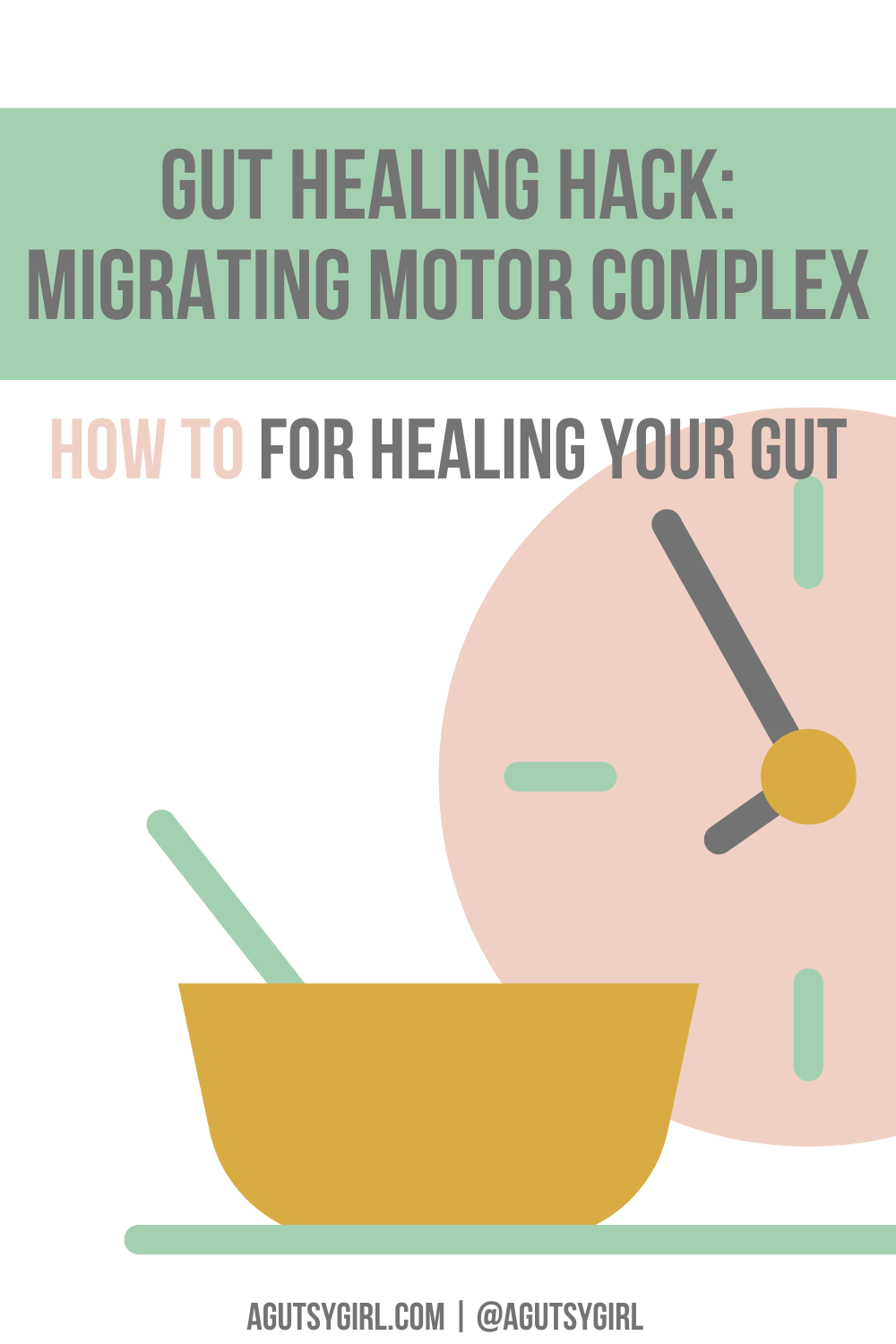
What Does MMC stand for?
MMC = migrating motor complex
The MMC acts as a “sweep” through the digestive tract. Think of it as housekeeping. Once activated, it “sweeps” through, cleaning up residual undigested material through the digestive tube.
However, it can only be activated if you’re allowing at least 90 – 120 minutes between eating. As soon as you eat again, it stops.
What is MMC?
The migrating motor complex (MMC) is a cyclic, recurring motility pattern that occurs in the stomach and small bowel during fasting; it is interrupted by feeding.
There are various lengths of time presented for “how long to wait in between feedings,” but we do know that four phases combine for the MMC cycle.
According to Science Direct, the total duration is 84 – 112 minutes.
The reason you see anywhere from 90 minutes – 4 hours suggested as appropriate meal spacing length is due to individual factors.
Thus, like everything else with gut healing, you’ll need to practice, test, and be meticulous with your recording to see what works for you personally.
And this is why you’ll note in the 90-day gut healing journal key my symbol and instructions for recording meal spacing. Grab the journal below and/or the e-version, PDF download, HERE.
So what counts as “disruption” to the cycle
Similar to intermittent fasting, anything with calories is thought to disrupt the migrating motor complex. In other words unless it’s water, black coffee, herbal teas, or the like, the MMC is likely being disrupted.
Alright, let’s chat about the practical applications for the migrating motor complex.
Snacking
I love to snack all. day. long. In fact, if it were up to me, I’d never sit down for a full meal and instead just munch throughout the day.
But by doing this, I never felt all that full, and my energy levels were too up and down.
So here’s exactly what I did to practice meal spacing for SIBO.
Meal Spacing for SIBO
Click HERE to save this how-to for later.
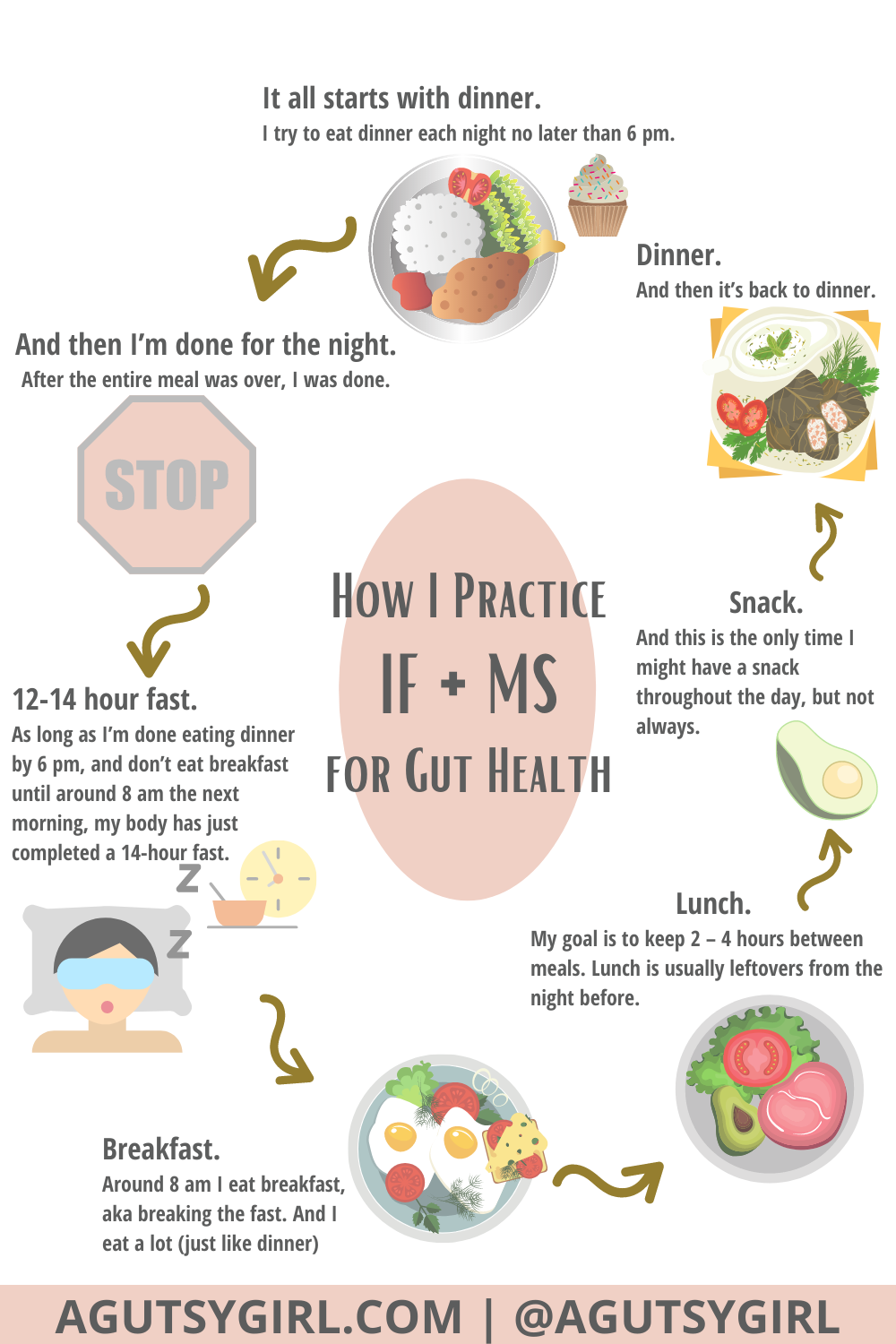
-
It all starts with dinner.
I try to eat dinner each night no later than 6 pm. For us, this works because I work from home (and Ryan is almost always home by 5 pm the days he travels), and our kids are screaming for dinner right around 5-5:30 pm. It takes a little planning, but as long as I plan the night’s dinner first thing that morning (or even the night before), it’s easy peasy squeezy.
Take last night for example. We had baked chicken drummies and root vegetables. I threw them all in the oven around 4 pm so that around 5 pm, dinner would be ready to go.
-
And then I’m done for the night.
No, I didn’t just have chicken drummies and root vegetables (although this is enough some nights). I also had a salad, coconut oil, and some other fixin’s. Once the main dinner was over, and because I love “dessert,” I grabbed my spoon and had enjoyed Carrot Cake Walnut Butter.
But after the entire meal was over, I was done. I didn’t go back in the kitchen to nibble more and more, and then grab a spoonful of something here and there right before bed. Just done.
-
12-14 hour fast.
As long as I’m done eating dinner by 6 pm, and don’t eat breakfast until around 8 am the next morning, my body has just completed a 14-hour fast……without really trying. I know that’s it a big thing these days to do Intermittent Fasting for weight loss, but with a low-functioning Thyroid and “adrenal fatigue,” I don’t believe in the practice as most people do it (which is to not eat until like 11-12pm, and then on top of it have certain days where they eat more carbs, less carbs, etc., etc.)
No judgement towards those who choose to intermittent fast rigorously, but the goal with a 12-14 hour fast for those with SIBO is to just let give the digestive system a long resting period. I do have coffee and water first thing in the morning, but no food.
-
Breakfast.
Around 8 am I eat breakfast, aka breaking the fast. And I eat a lot (just like dinner). Lately, we have been obsessed with eggs and breakfast sausage, so I’ll have that (probably 2-3 eggs and 3-5 mini breakfast sausage links) and as often as I can, sautéed greens.
-
Lunch.
After breakfast, I’m done again until 12:30-1 pm. My goal is to keep 2 – 4 hours between meals. I used to nosh all morning long, but have nixed this. Lunch is usually leftovers from the night before or a jumbo salad like the one I had yesterday.
-
Snack.
And this is the only time I might have a snack throughout the day, but not always. I’ve been digging various Paleo bars lately, so I’ll have one of these many days in between lunch and dinner. That said, yesterday I just wrapped it into lunch, and then was so full I didn’t eat again until dinner.
-
Dinner.
And then it’s back to dinner.
Incredible Changes
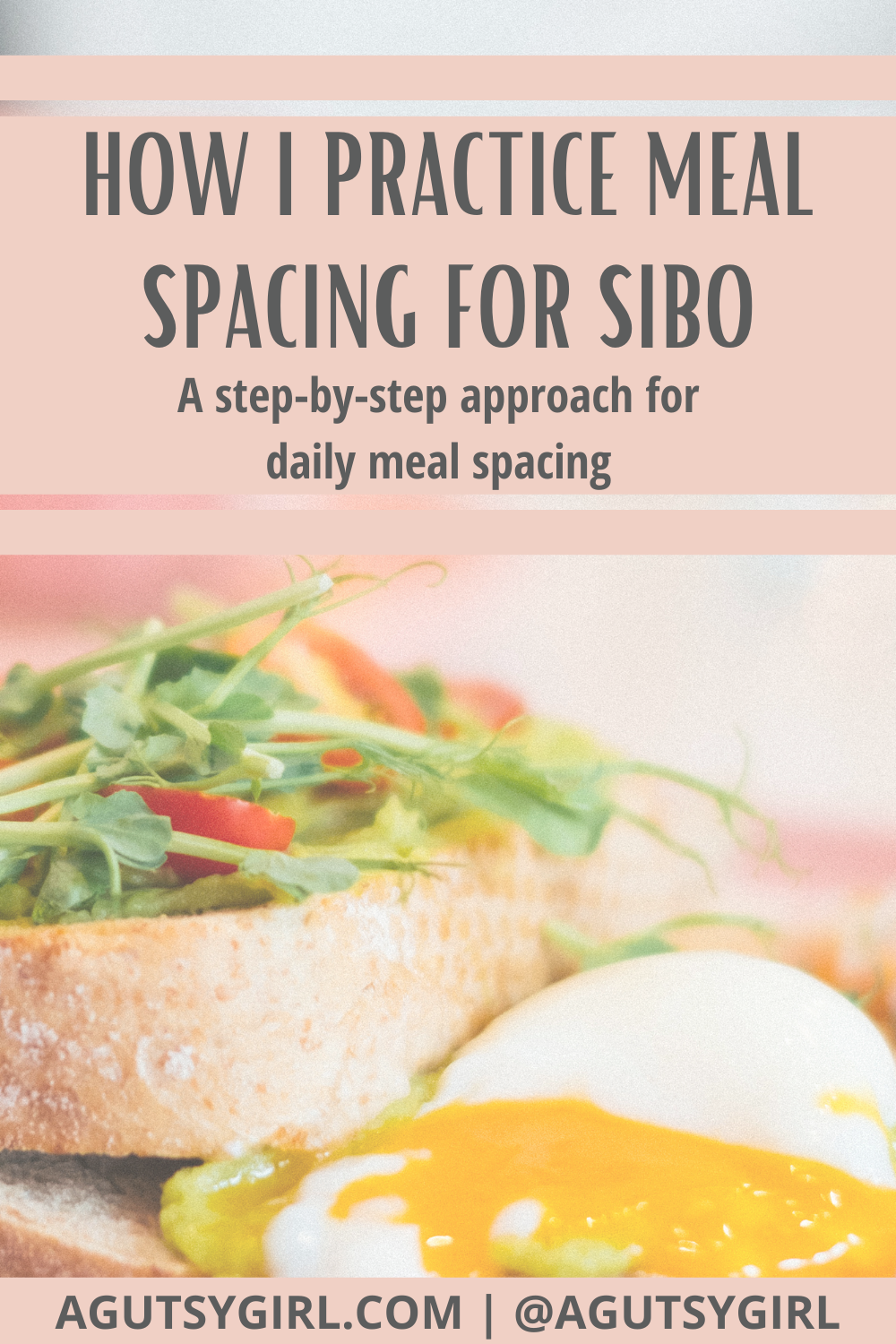
I saw and continue to see incredible changes by practicing (both) intermittent fasting and meal spacing.
In fact, it’s a true gut healing hack because it requires almost nothing except a little time.
Question: Do you practice meal spacing? How has it worked for you? If not, are you interested in giving it a shot?
If you liked this post, you might also enjoy:
Xox,
SKH
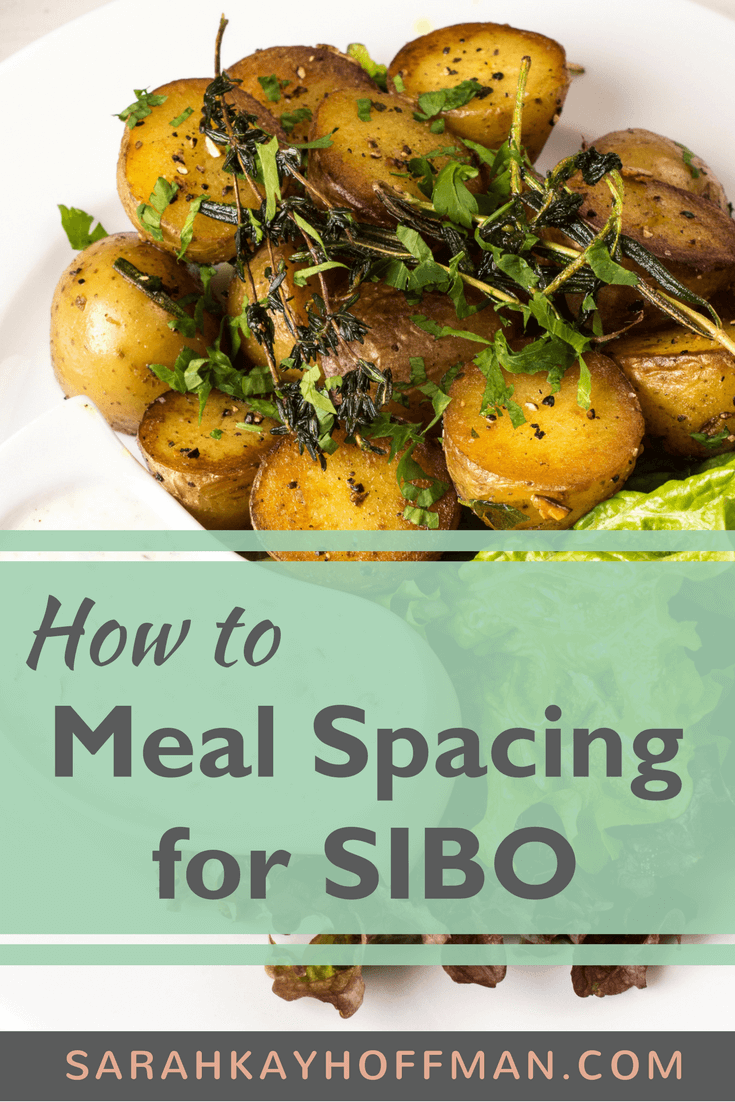
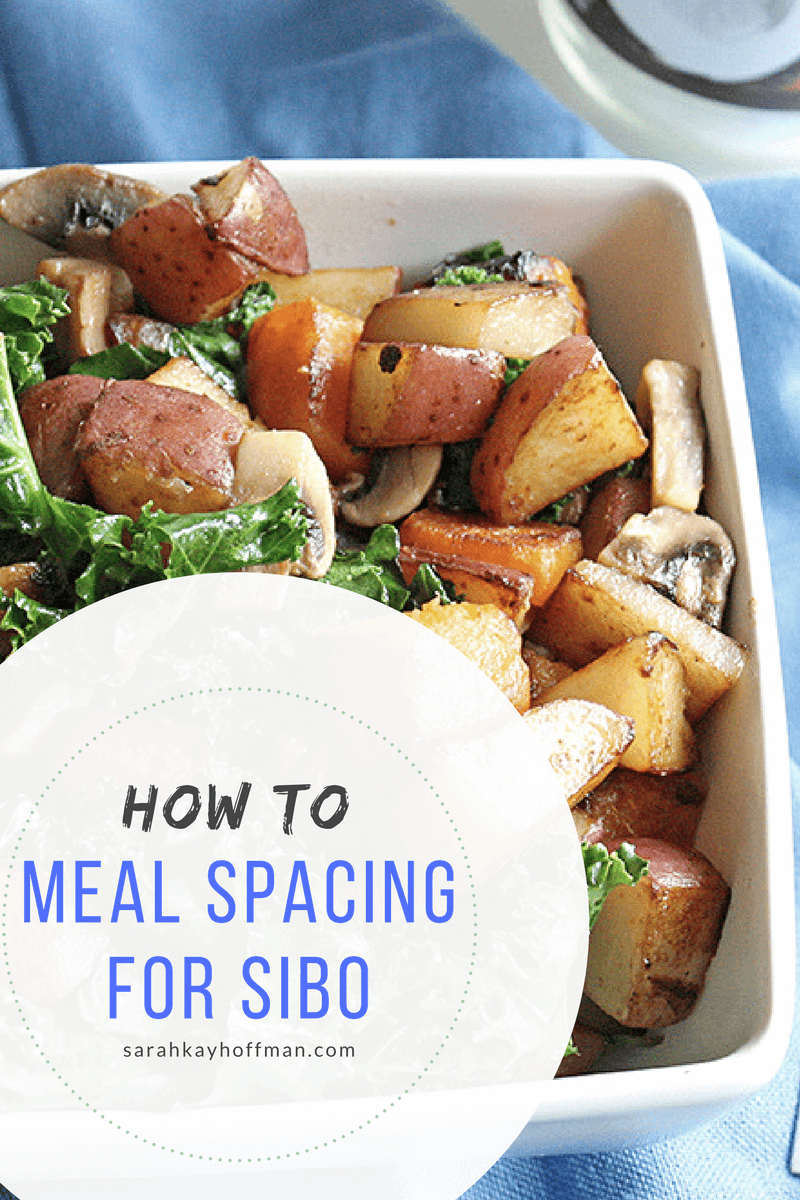
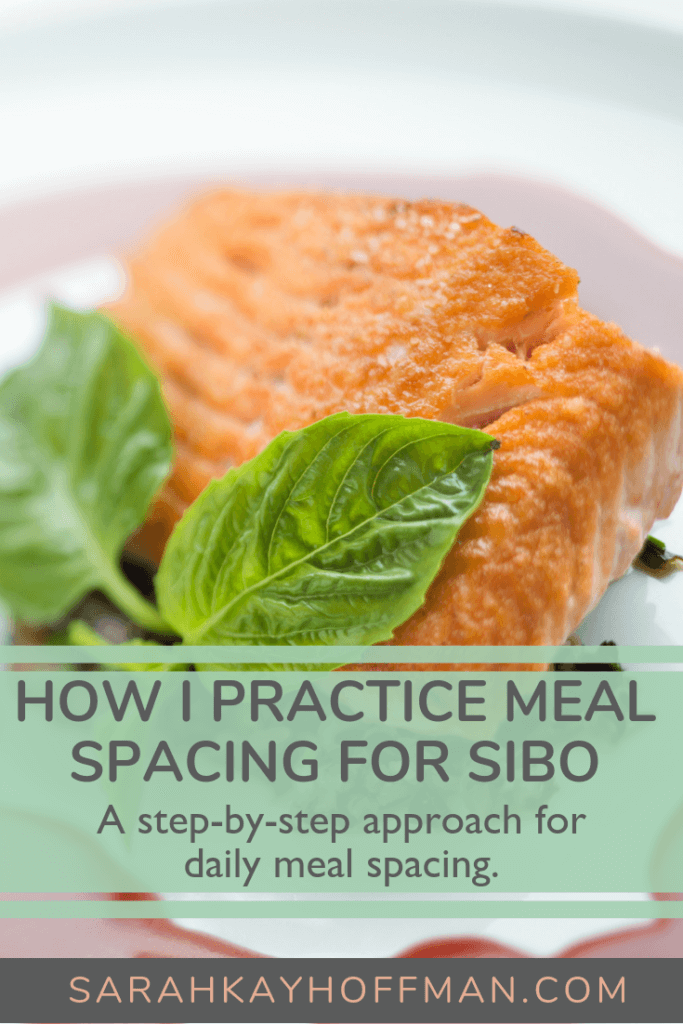
🤰 bloating be gone! weight loss through optimal gut health for women
💃ʜᴇᴀʟ ʏᴏᴜʀ ɢᴜᴛ. ʜᴇᴀʟ ʏᴏᴜʀ ʟɪfe.
🫶🏻 founder gutbyome.com




![Gluten-Free Granola Recipe [Slow Cooked, Perfect for Fall]](https://agutsygirl.com/wp-content/uploads/2012/09/fall-agutsygirl.com-featured-granola.png)


Hi Sara, I am doing the same thing keeping my meals spaced…use to be a big snacker. Do you know if things like medication/supplements interrupt the MMC? I take Low-dose Naltrexone right before bed as well as 900 mg of magnesium. This is about two hours after dinner right before bed. I can’t seem to find anything on the web about whether supplements and medication interrupt the MMC during fasting.
Any info?
Thanks ,
Amber ????
Hi, Amber! That is a very interesting question and no, I do not know anything about it. However, I have never heard that it would interfere. I, too, take LDN and I haven’t had any problems. Let me know if you run across any real answer to it!
Hi Sara,
I too, am trying IF. I was a huge snacker as well. If it were up to me I’d snack continuously day and night. After reading a lot about it I decided I needed to try it. Makes complete scene that the gut shouldn’t be working non stop. I’ve been finding some relief as far as bloating; yet still very bloated after eating large meals. Guess it’s a wrk in progress like everything else! Great article.
Thanks! Good luck to you.
Hi and thanks for the post. This is something I’ve been trying to focus on more. I feel like I know I need to do this, but I definitely struggle with it. I think if I plan my meals better I will have better success. Jll just keep on trying!
Thanks for this article. I started playing around with spacing meals after feeling totally out of control with horrible gas and bloating — awful! — and read about not snacking and the MMC. I work from home and sometimes sit at my kitchen bar at my computer all day so good/snacks are so close! I also practice pretty strict IF but meal spacing within my eating window has been the thing that has saved me. And being careful not to eat too much which is hard because I train really hard and get sooo hungry. I think taking enzymes, probiotics, meal spacing and drinking plenty of water are what has all helped me (also being mindful of a lot of food intolerances and allergies). We are complex beings. Patience is everything!